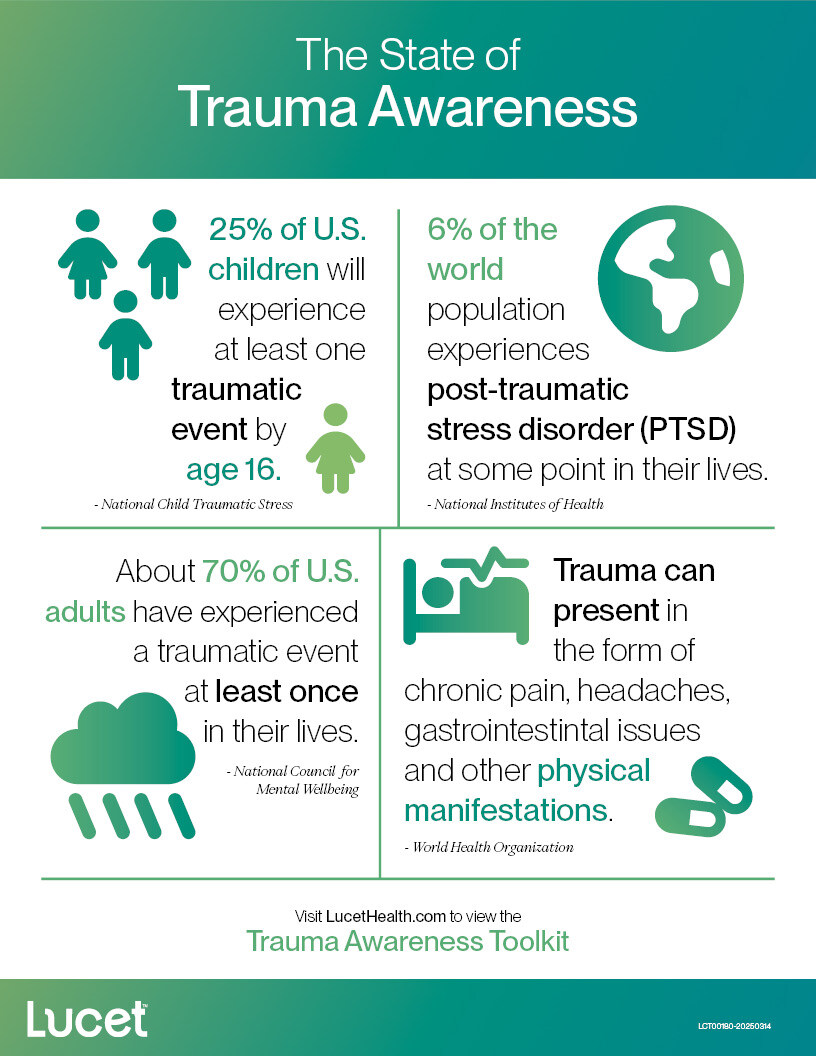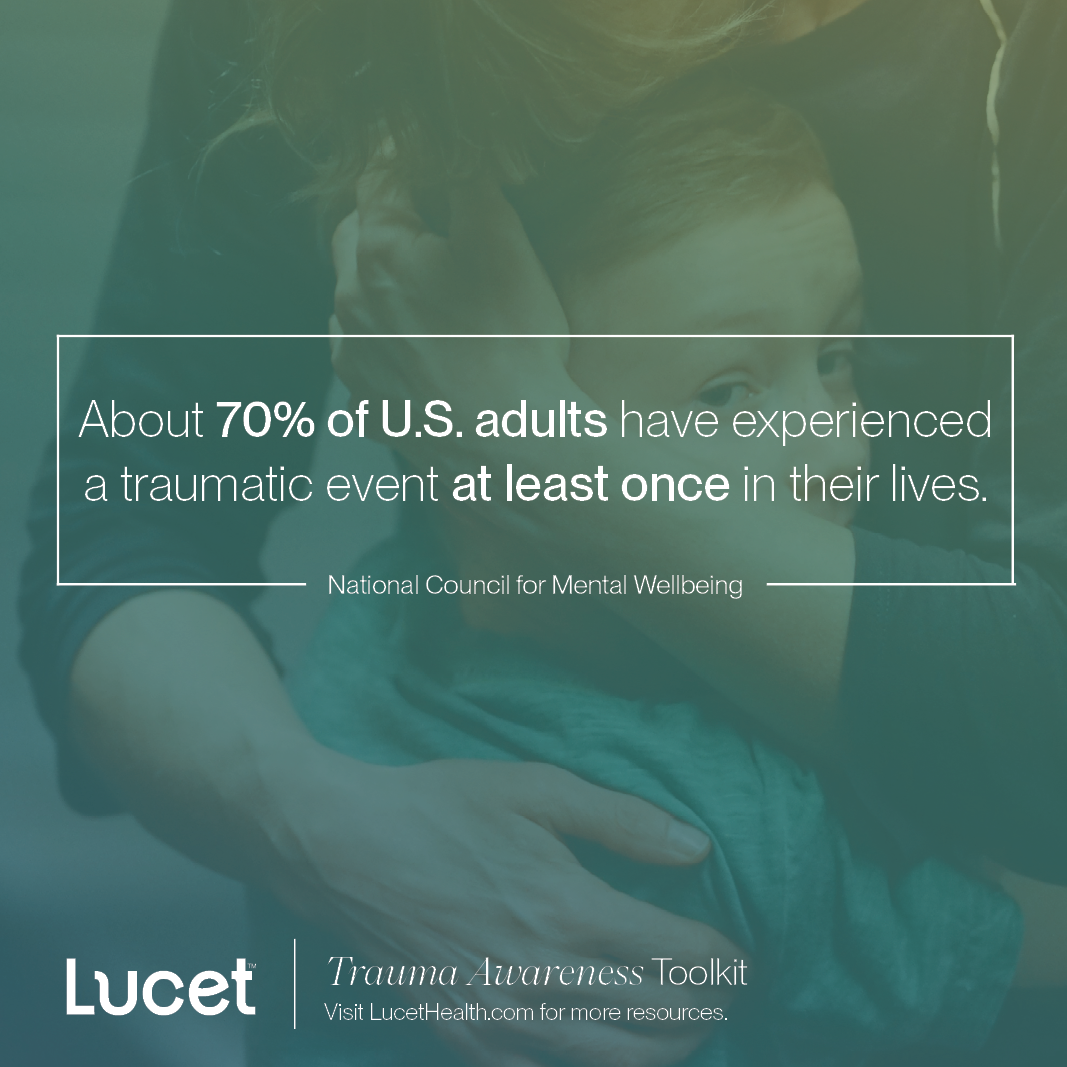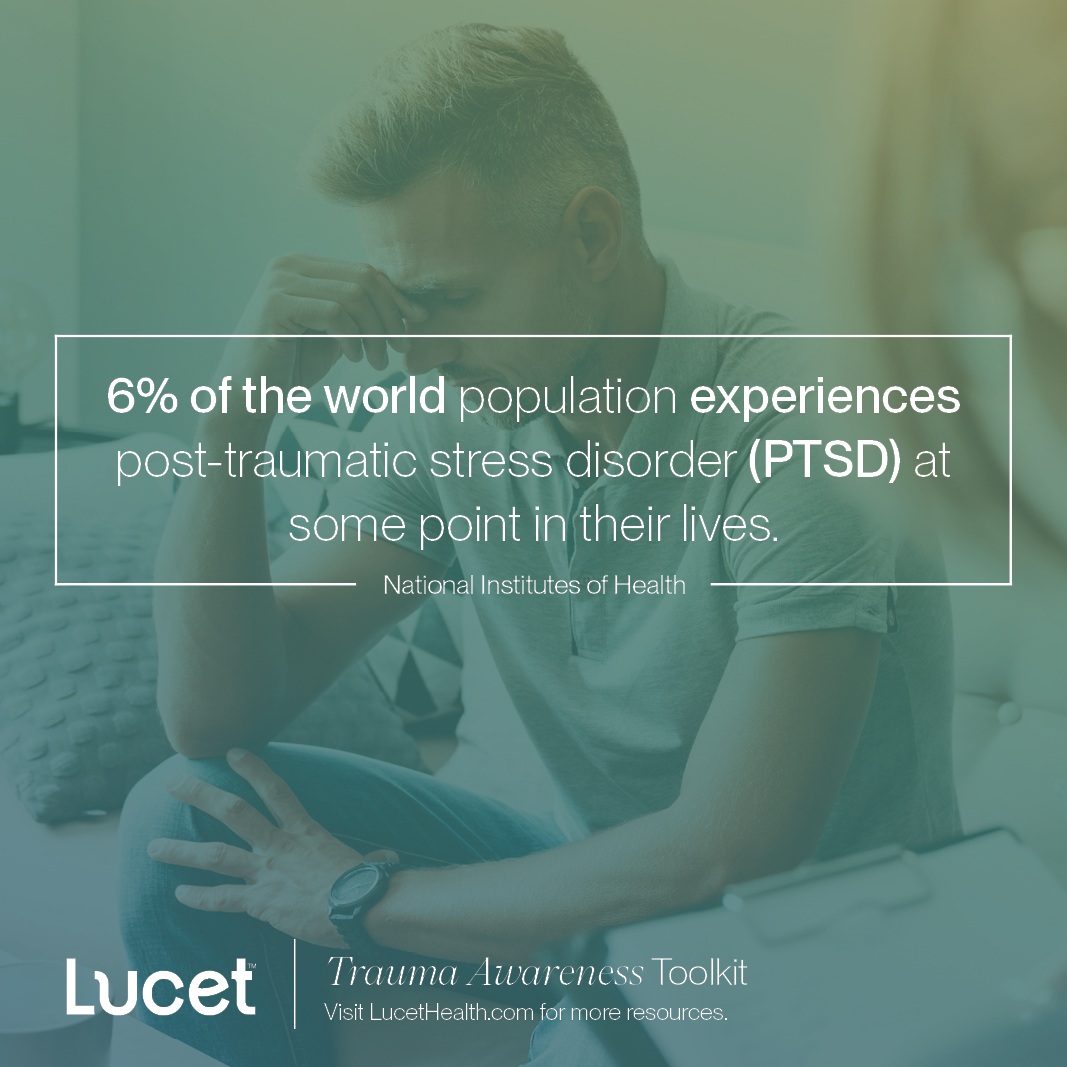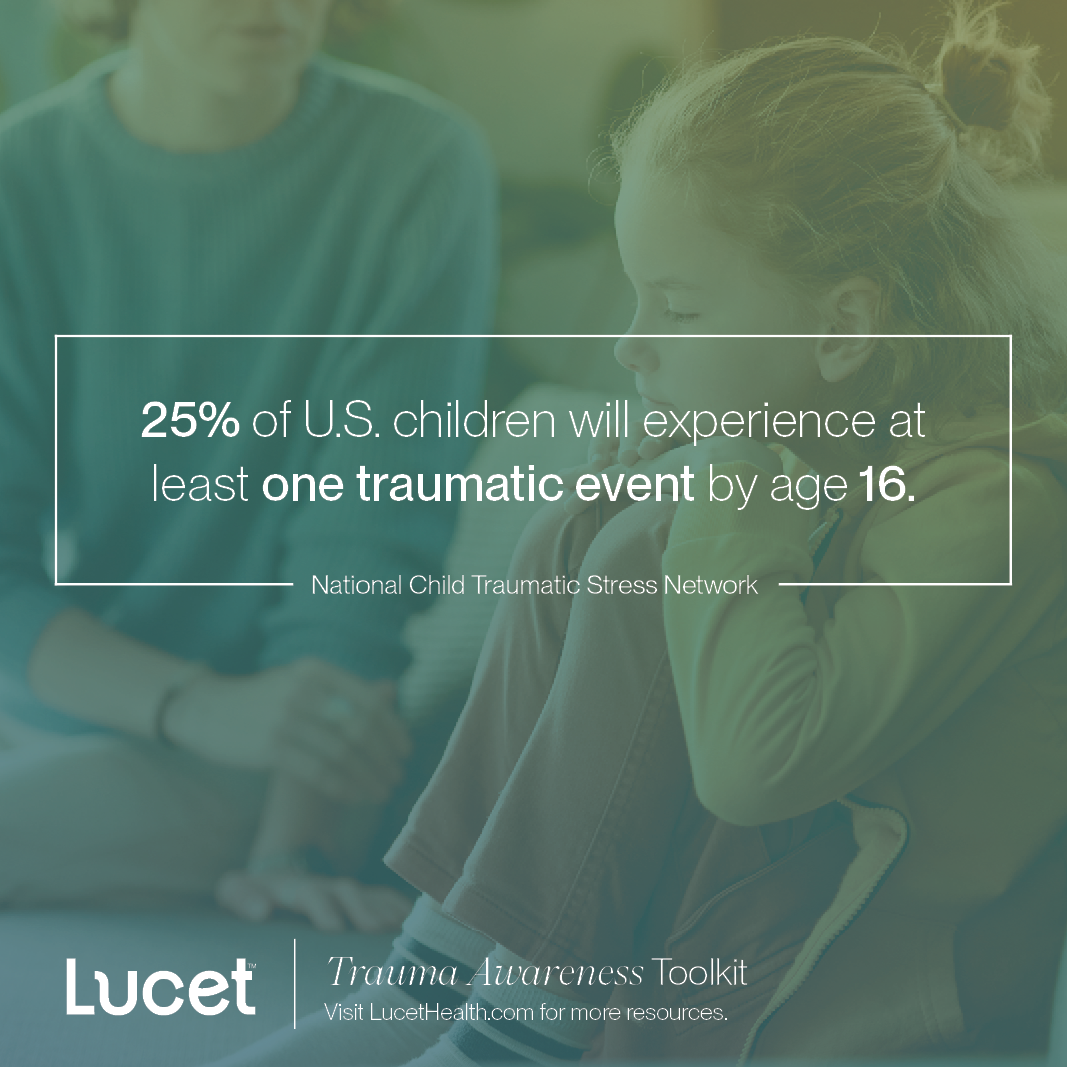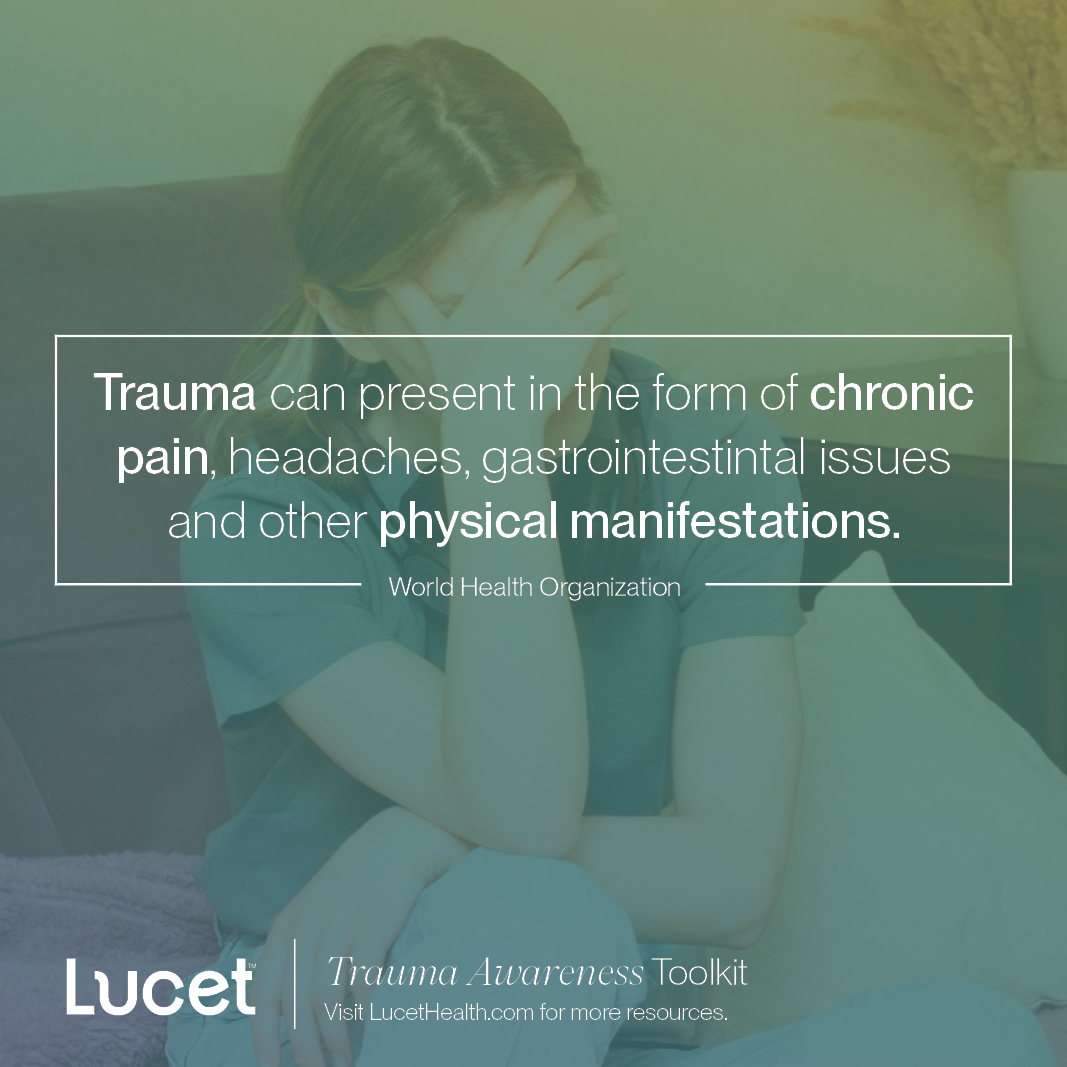Join the Conversation: PTSD Awareness Month
June is PTSD Awareness Month
Use the language below when posting about PTSD awareness on social media. Follow Lucet to see our content and share it on your account. You can also follow the steps below to post from your own account.
Create posts on your social media accounts
- Log in to one of your active social media channels to create a post.
- Scroll below and choose your desired social post language.
- Copy the caption and paste it into your social post editor.
- Right click on the corresponding graphic below to save it to your computer, then upload the graphic to your post to accompany the caption.
- Be sure to tag @LucetHealth. To tag any organizations listed in the caption, type @ in the social post editor, then start typing the desired organization. Choose the organization you want to tag from the dropdown list of pages that appear.
- Include the following hashtag in your caption: #PTSD #HealTrauma
- Post!
Share Infographic/Entire Toolkit
June is PTSD Awareness Month. A majority of adults in the United States—nearly 70%—have experienced a traumatic event in their lives. These experiences can lead to PTSD, which has lifelong consequences on mental health.
Use our resources to learn about the state of trauma and share support throughout June and all year long: resources.lucet.health/toolkit-trauma-awareness
If you or someone you know is struggling with trauma, you can find additional resources through the National Center for PTSD, including the PTSD Coach mobile app. Veterans can contact the Veteran Crisis Line by dialing 988, then pressing 1.
#MentalHealth #PTSD #PTSDawareness #HealTrauma
Share Tips
The effects of trauma vary from person to person and while some people improve over time, others can carry lasting emotional, psychological, or even physical scars. Understanding the signs of trauma and normalizing their reactions is the first step in creating a supportive environment for recovery.
Read more to recognize signs and encourage those struggling to seek help: resources.lucet.health/toolkit-trauma-awareness/reactions-to-trauma-know-the-signs
#MentalHealth #PTSD #PTSDawareness #HealTrauma
Trauma impacts each person differently, so it’s important to approach related conversations with sensitivity and care. Throughout the process, it’s key to remember that how we speak to those struggling can encourage healing, or it could deepen their sense of isolation if we unintentionally dismiss their pain.
Read more about developing inclusive language: resources.lucet.health/toolkit-trauma-awareness/speaking-to-someone-with-trauma
#MentalHealth #PTSD #PTSDawareness #HealTrauma
Share Articles
Trauma comes in many forms and can result from any event that overwhelms an individual’s ability to cope. But regardless of severity, no trauma should be considered too small to seek help.
Read more to understand different types of trauma and the types of support each may need: resources.lucet.health/toolkit-trauma-awareness/what-is-trauma
#MentalHealth #PTSD #PTSDawareness #HealTrauma
PTSD can intertwine with comorbidities such as depression, sleep disorders or substance use disorders. It also presents among all ages with differing symptoms.
Read more to learn positive coping mechanisms when living with the aftereffects of trauma: resources.lucet.health/toolkit-trauma-awareness/steps-toward-healing-from-ptsd
#MentalHealth #PTSD #PTSDawareness #HealTrauma
#HealTrauma
If you or someone you know is struggling with trauma, you can find additional resources through the National Center for PTSD, including the PTSD Coach mobile app. Veterans can contact the Veteran Crisis Line by dialing 988, then pressing 1.
